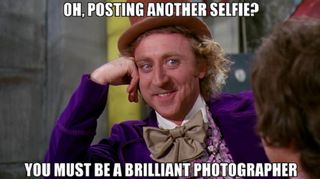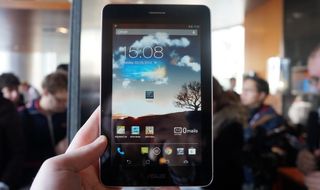‘Selfie’ and ‘Phablet’ Are Now Part of the English Language

If you’re tired of seeing obnoxious “duck- faced” self-portraits in your Facebook news feed, you better get used to it. The word “selfie” is now listed as a legitimate word in the Oxford Dictionaries Online along with the terms “phablet” and emoji.”
The website defines a selfie as “a photograph that one has taken of oneself, typically one taken with a smartphone or webcam and uploaded to a social media website.” But don’t be so quick to raise your smartphone and flip on its front-facing camera just yet. Oxford’s context sentence for the entry “selfie” bears some solid advice if you want to keep your Facebook friends and Twitter followers:
“Occasional selfies are acceptable, but posting a new picture of yourself every day isn't necessary.”
MORE: 10 Amazingly Dumb Things We Do with Smartphones

While most mobile users typically refer to their mobile devices as smartphones or tablets, the English dictionary now has a word for something that falls right in the middle. The term “phablet,” has been used to define smartphones such as the Galaxy Note 2 that sport screen sizes more than 5 inches in length, and now that description can be considered official.
The dictionary states that a phablet is “a smartphone having a screen size which is intermediate in size between that of a typical smartphone and a tablet computer.”
Other oddities that have appeared as official entries in the online dictionary include “twerk” (yes, the provocative dance that appears to be Miley Cyrus’ new signature move), “emoji” (those adorable little icons frequently used during texting) and “food baby” (when you eat way too much and your stomach feels like its protruding).
Stay in the know with Laptop Mag
Get our in-depth reviews, helpful tips, great deals, and the biggest news stories delivered to your inbox.
Before you bow your head in shame at the English language, remember that the Oxford Dictionaries Online is different from the Oxford English Dictionary. Both dictionaries are published by the Oxford University Press, but the former changes much more frequently and has previously added acronyms like “OMG” and “LOL “in recent years. The latter updates its database less often and doesn’t remove a word once it’s been added.
